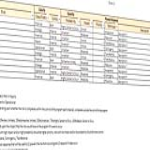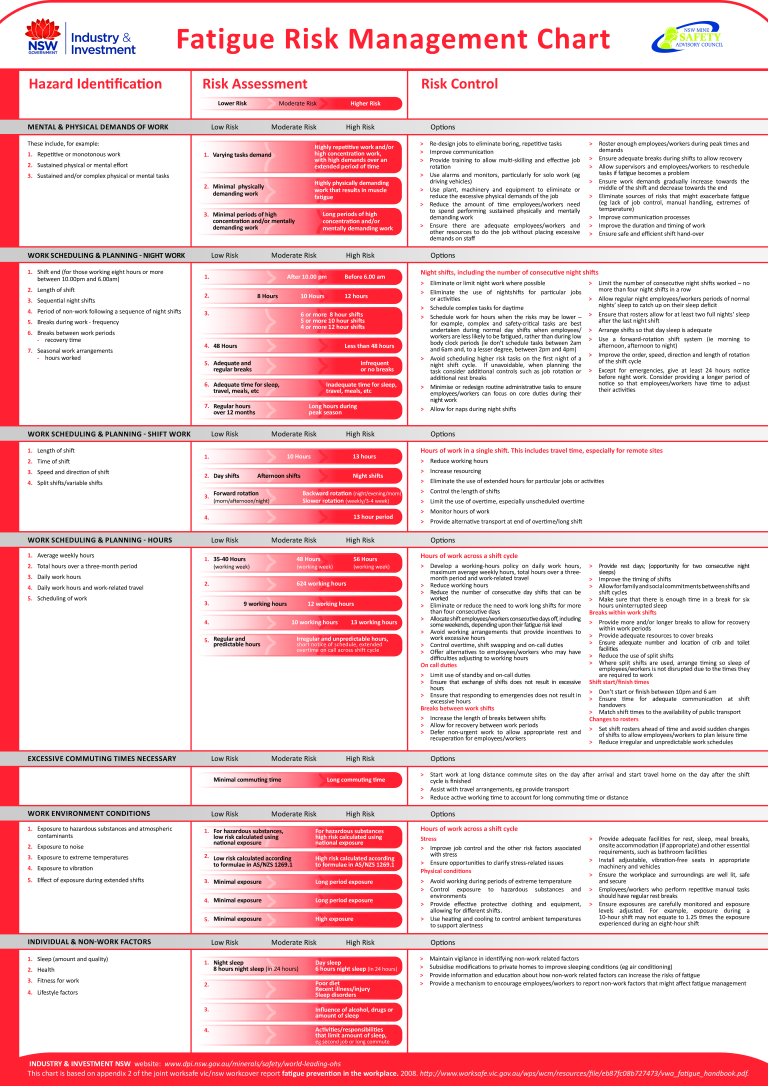Fatigue Risk Management Chart
Save, fill-In The Blanks, Print, Done!

Download Fatigue Risk Management Chart
Adobe Acrobat (.pdf)- This Document Has Been Certified by a Professional
- 100% customizable
- This is a digital download (784.72 kB)
- Language: English
- We recommend downloading this file onto your computer.
How to draft a Fatigue Risk Management Chart? An easy way to start completing your document is to download this Fatigue Risk Management Chart template now!
Every day brings new projects, emails, documents, and task lists, and often it is not that different from the work you have done before. Many of our day-to-day tasks are similar to something we have done before. Don't reinvent the wheel every time you start to work on something new!
Instead, we provide this standardized Fatigue Risk Management Chart template with text and formatting as a starting point to help professionalize the way you are working. Our private, business and legal document templates are regularly screened by professionals. If time or quality is of the essence, this ready-made template can help you to save time and to focus on the topics that really matter!
Using this document template guarantees you will save time, cost and efforts! It comes in Microsoft Office format, is ready to be tailored to your personal needs. Completing your document has never been easier!
Download this Fatigue Risk Management Chart template now for your own benefit!
Consider providing a longer period of notice so that employees/workers have time to adjust their activities Increase resourcing Eliminate the use of extended hours for particular jobs or activities Control the length of shifts Limit the use of overtime, especially unscheduled overtime Monitor hours of work Provide alternative transport at end of overtime/long shift Options Hours of work across a shift cycle Develop a working-hours policy on daily work hours, maximum average weekly hours, total hours over a threemonth period and work-related travel Reduce working hours Reduce the number of consecutive day shifts that can be worked Eliminate or reduce the need to work long shifts for more than four consecutive days Allocate shift employees/workers consecutive days off, including some weekends, depending upon their fatigue risk level Avoid working arrangements that provide incentives to work excessive hours Control overtime, shift swapping and on-call duties Offer alternatives to employees/workers who may have difficulties adjusting to working hours On call duties Increase the length of breaks between shifts Allow for recovery between work periods Defer non-urgent work to allow appropriate rest and recuperation for employees/workers Provide rest days (opportunity for two consecutive night sleeps) Improve the timing of shifts Allowforfamilyandsocialcommitmentsbetweenshiftsand shift cycles Make sure that there is enough time in a break for six hours uninterrupted sleep Breaks within work shifts Provide more and/or longer breaks to allow for recovery within work periods Provide adequate resources to cover breaks Ensure adequate number and location of crib and toilet facilities Reduce the use of split shifts Where split shifts are used, arrange timing so sleep of employees/workers is not disrupted due to the times they are required to work Shift start/finish times Don’t start or finish between 10pm and 6 am Ensure time for adequate communication at shift handovers M
DISCLAIMER
Nothing on this site shall be considered legal advice and no attorney-client relationship is established.
Leave a Reply. If you have any questions or remarks, feel free to post them below.
Related templates
Latest templates
Latest topics
- GDPR Compliance Templates
What do you need to become GDPR compliant? Are you looking for useful GDPR document templates to make you compliant? All these compliance documents will be available to download instantly... - Google Docs Templates
How to create documents in Google Docs? We provide Google Docs compatible template and these are the reasons why it's useful to work with Google Docs... - IT Security Standards Kit
What are IT Security Standards? Check out our collection of this newly updated IT Security Kit Standard templates, including policies, controls, processes, checklists, procedures and other documents. - Letter Format
How to format a letter? Here is a brief overview of common letter formats and templates in USA and UK and get inspirited immediately! - Google Sheets Templates
How to work with Google Sheets templates? Where to download useful Google Sheets templates? Check out our samples here.
cheese


